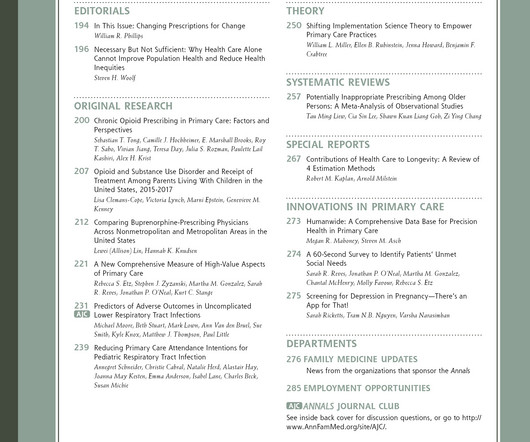Hepatitis C Micro-elimination Using Patient Navigation In a Regional Healthcare System [Infectious diseases (not respiratory tract)]
Annals of Family Medicine
NOVEMBER 20, 2024
Objective(s): This research explores patient navigation between primary care and specialty care to facilitate treatment completion in a health care system. Intervention: Patient navigation program to specialist treatment from primary care with additional referral to behavioral health services. Among new patients, 58.9%



















Let's personalize your content